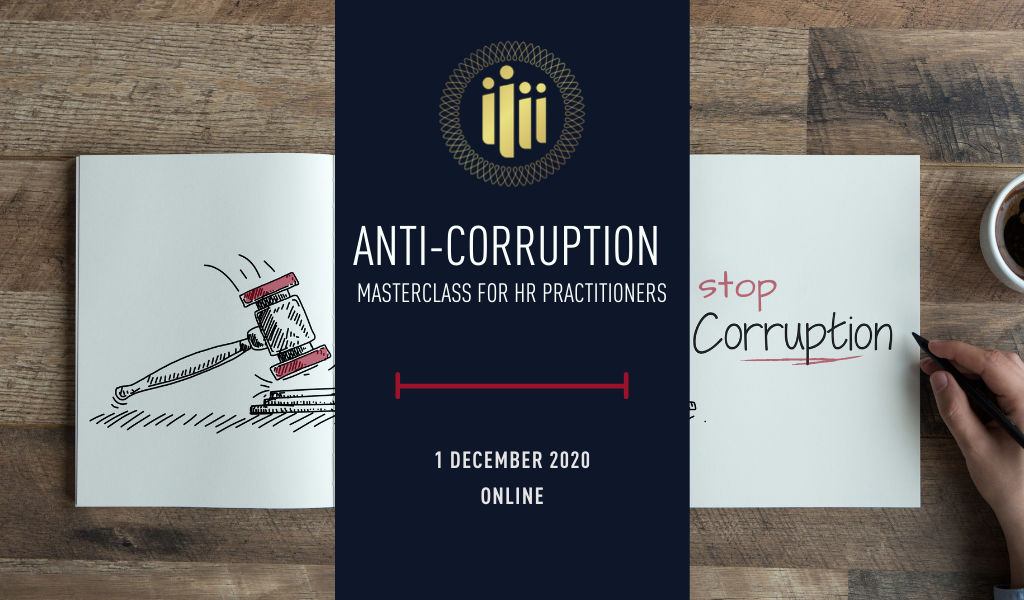Whenever we allow or undertake untoward interventions in the HR processes we are responsible for, in order to achieve an outcome that unfairly favours ourselves or another party, we are enabling or committing corruption.
Corrupt interventions in an HR process can be precipitated by the use of any one of the standard tools of corruption: abuse of position or authority, nepotism, bribery, extortion and blackmail.
There are numerous ways in which the recruitment process, arguably our most important responsibility as HR practitioners, is corrupted.
We are all familiar with instances where people in our own profession have taken bribes in return for job placements (corruption) and where outside scamsters have run pay-for-application schemes (fraud).
What we need to develop, as a matter of urgency, is a heightened awareness of the other ways in which our recruitment processes can serve corruption. To do so, we have to start by getting back to basics in understanding corruption and its toolkit.
In-house HR practitioners, in truth, are familiar with the pressure from others to favour candidates for reasons other than the best interests of the role itself. This pressure comes in many different forms, but generally involve the corruption tools of abuse of influence, possibly coupled with some degree of extortion (the threat of some form of harm befalling the resistant HR practitioner).
As bribery is also a common tool of corruption, it is essential that we understand that both in reality and in law, bribes come in forms that extend way beyond cash-filled envelopes. A bribe can be anything of value to the recipient.
It’s painful for us to consider the ways in which HR processes have been corrupted in South Africa and perhaps that is why we close our eyes one time to many. It may be easier for us to reflect on the phenomenon of jobs being used as bribes by looking further afield for examples of how such activity cost global institutions dearly, causing multinationals to clean up their recruitment processes:
- You may not know the name but its likely you are benefiting from one of its products right now – Qualcomm Inc. It’s a San Diego-based computer chip manufacturer who had to pay a $7.5 million fine to US regulators for its violation of anti-bribery provisions in hiring relatives of Chinese government officials. The officials were in positions of power to decide whether to select Qualcomm’s products in the face of growing competition.
- When allegations of corrupt hiring practices multinational investment bank and financial services company JP Morgan emerged, an investigation uncovered the bank’s now famous ‘Sons and Daughters’ programme which saw 222 candidates appointed as bribes over a nine-year period. The lucrative employment opportunities were given to children of powerful Chinese officials in government and state-owned enterprises in exchange for business. The breach of anti-corruption regulations eventually cost JP Morgan and its Asian subsidiary $264 million in fines and penalties.
Before your cast judgement and conclude that these examples don’t apply to your organisation, it’s important to understand that the anti-bribery laws of other countries can have far-reaching implications for businesses and government officials the world over. It’s just one of the many insights you will develop more fully if you attend the upcoming SABPP Anti-Corruption Masterclass for HR Practitioners. Its knowledge that will equip you to play a meaningful role in positioning your organisation as a part of the solution to the reality of corruption in our country.
While both the examples provided happen to involve US and Chinese parties, both these countries have a great deal to teach us about tackling corruption – but that is a subject for another day.
When we allow corruption of our HR processes, we are contributing to the extent of social injustice in South Africa. It’s simple, fairness lies at the heart of social justice, and we need to be the guardians of fairness in the application of all HR processes if we are to ensure that we are not enablers of corruption.

Penny is the facilitator of the Anti-Corruption Masterclass for HR Practitioners scheduled for the 1st of December 2020. The masterclass is a powerful learning opportunity for HR practitioners at all levels. Click here to register.
Watch Penny challenge some of the current conventions in the practice of human resource management today on the Newmella Leaders Chat series on Vimeo here. The heartfelt interview will provoke your thinking on a number of general HR topics – and give you an idea of the approach to expect when you register for the Anti-Corruption Masterclass.


